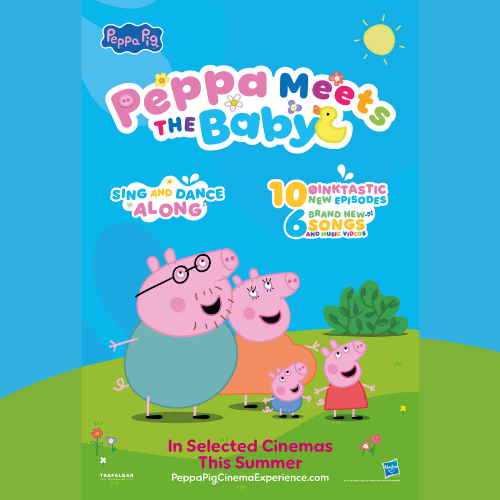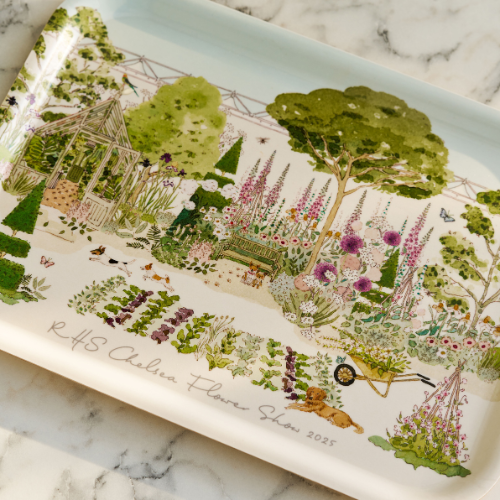Start Licensing’s Ian Downes checks out how his local garden centre is handling licensed product.
I decided to visit my local garden centre on Saturday – in part because it was a wet Saturday and in part to get inspiration for springtime planting. It also helped that it has a dog friendly cafe!
While I failed to transform myself into licensing’s Monty Don, I did see at first hand how licensing friendly garden centres are and how there is more to garden centres than gardens. For every plant pot there was a teapot.
‘My’ garden centre which is in Chessington has a cafe, a pet shop, of course lots of plants, but also a well stocked gift, food and book offer.
Garden centres have been identified as a ‘growth’ opportunity in retailing and licensing. However, much like choosing plants for your garden, products have to be chosen carefully to suit the garden centre environment and consumer.
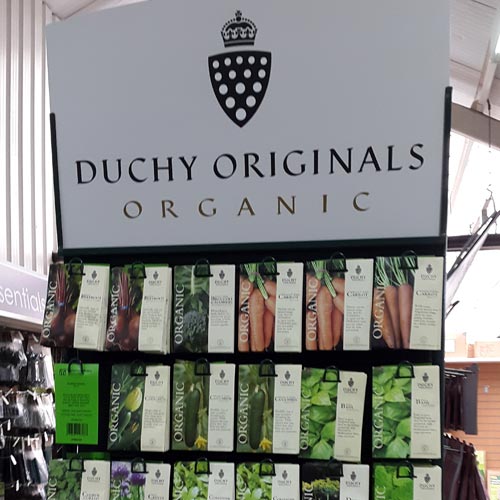
I saw some good examples of licensing on my visit. There were two good product ranges of seeds carrying licences. One was using the Duchy Originals brand for a range of organic vegetable seeds sold in branded packs on an eye-catching display unit.
There was also a packet seed range aimed at young gardeners utilising the Royal Horticultural Society branding in conjunction with cartoon-like characters created for the range. These were marketed by Thompson & Morgan with the strap line ‘super seeds for green-fingered kids’. Again the product was well displayed; the RHS have recognised that their brand authority can work well in this context and this range allows them to reach a new generation of gardeners.
Display seems a key issue in garden centres. Consumers generally dwell and browse on their visit, so an investment in display seems to pay dividends. Licensee Briers, which develops apparel and footwear, has recognised this with its purpose built display for its range of boots, outerwear and accessories based on The Gruffalo.
This seems to be a good choice of licence for the category and the retail channel. The licensee has invested in display which must reassure the retailer of their faith in the brand. It is good to see characters being used in this way.
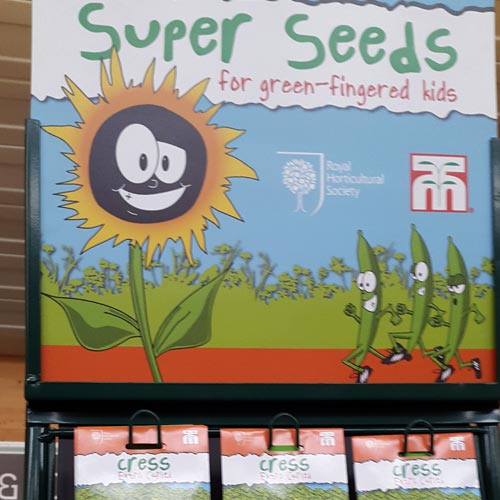
Greetings cards are also a big part of the garden centre offering and the racks had a good selection of licensed ranges including the RHS, the RSPB and Kirstie Allsopp. Selections seem to be based on lifestyle and subject matter. Other paper goods such as stationery and partyware are a core part of the product offer, as are toys and books.
In the book section there was a dedicated FSDU for Star Wars. One challenge garden centres face is keeping product offerings fresh as they seem to have a slower turnover of product and are more rigid about seasonality of product offering. Major events like Easter and Christmas tend to take over garden centre space.
I was certainly encouraged by the depth of licensed product on show and my experience seemed to reinforce the perception in the licensing market at the moment that garden centres hold good potential for the industry. That said I think it will be important to match the right products, brands and licences to the sector. I don’t see garden centres as a natural partner for hot properties, for example.
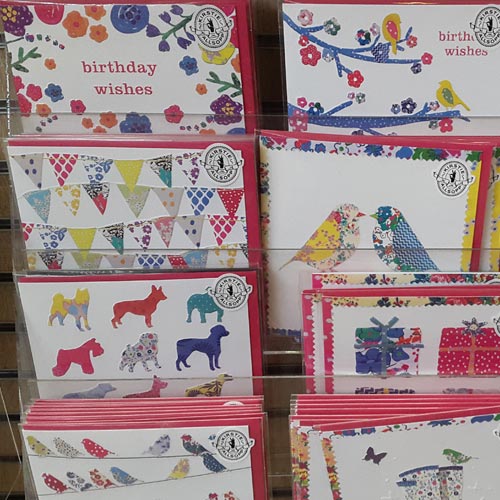
I was also very impressed by the ongoing commitment of Mothercare to licensing in their baby wear offering.
I visited their Brent Cross shop this week and the range of licensed babygros and sleep suits featuring properties such as Bananaman, Tom & Jerry, Star Wars, Turtles and Donald Duck was eye-catching in terms of the space dedicated to it, the depth of the range and the quality of the design work.
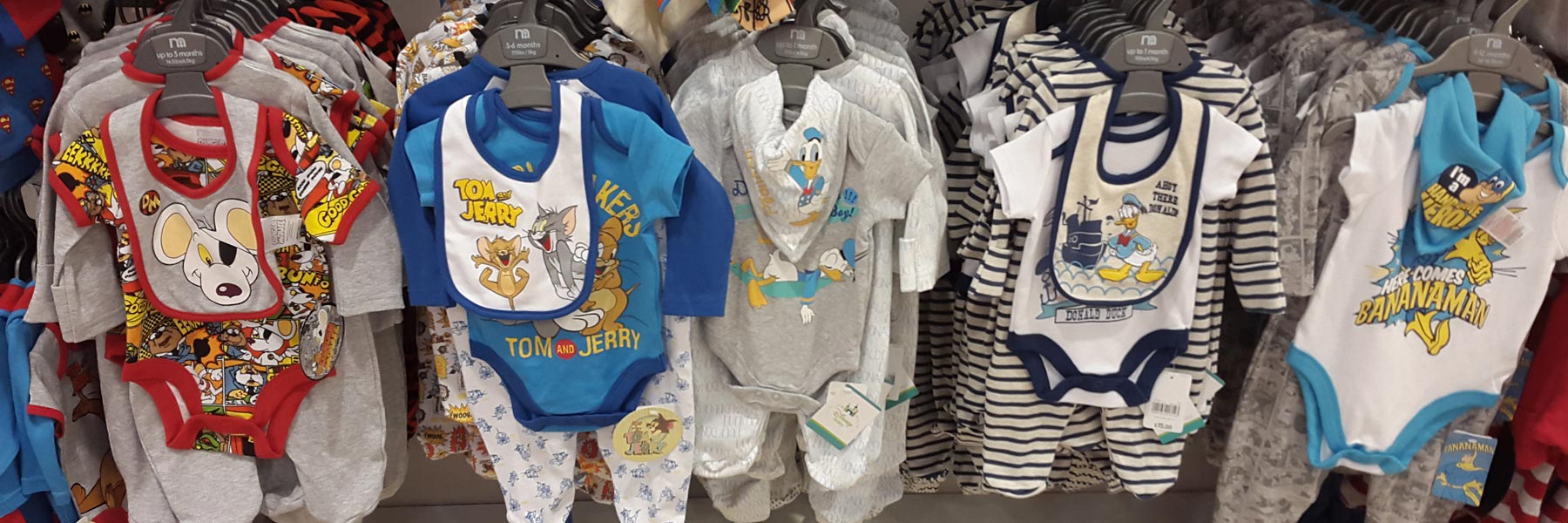
They seem to have taken a custom approach to design really thinking about the product and matching design to fit the category.
Mothercare has really embraced the opportunity and it is a great showcase for licensing. The product is pitched in part as a gift with the character mix reflecting the lifestage of new parents, but importantly their friendship circle who will be buying these products as gifts as much for the parents as the baby.
It seems to be working for Mothercare and shows how retailers can get rewards for using licensing in a strategic way with a long-term commitment. Interestingly, Mothercare’s commitment stretches to brands as well with a range of Converse babywear being given a lot of space in-store.
This is evidence that licensing comes in many forms and that the licensing landscape is changing.
Ian Downes runs Start Licensing, an independent brand licensing agency. His Twitter handle is @startlicensing – he would welcome your suggestions for what to look out for.

















